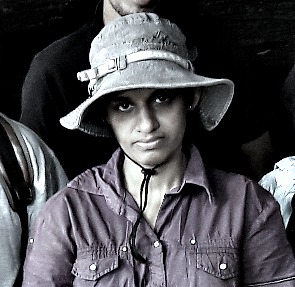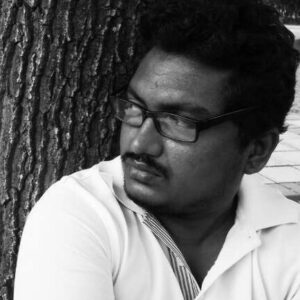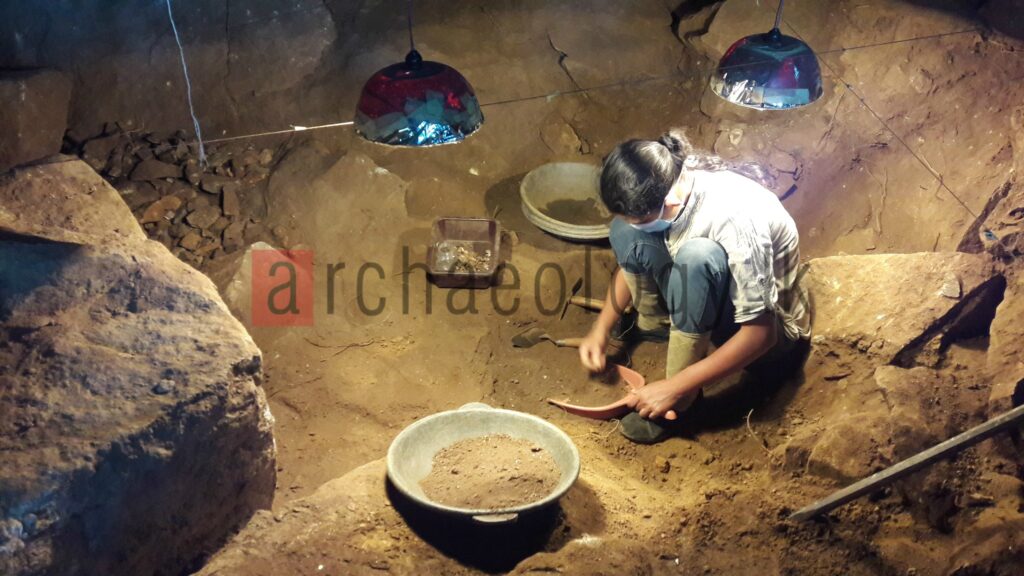Introduction to Life in Sri Lankan Archaeology
Archaeology, the scientific study of the material remains of the human past is a unique field in where the participant while digging up the past is exposed to an array of diverse cultures and environments. It is a field that requires a strict discipline in conducting one’s self as the vehicle of archaeology would drive one to various places of the world, meet different people of different cultures and changing environments. For the lover of history and nature, this could be a very satisfying experience to the soul as archaeology binds one to these two aspects thereby creating a character more open to the diversity of humanity.
While on the recent archaeological excavation at the prehistoric cave of Alugalge in Illukkumbura, Balangoda, Archaeology.lk wanted to find out about as to what goes on in the life of Archaeologists and what it is like on a dig. Archaeology.lk was able to speak to two team members Anusha Wanniyanayaka and Dinesh Devage to find out what life is in this interesting field.
Life on an archaeological dig – Anusha Wanniyanayaka

Anusha Wanniyanayaka, who holds a MSc in Archaeology is a Research Assistant attached to the Field Archaeology Unit of the Postgraduate Institute of Archaeology (PGIAR) and is a long term member of the team of Prof. Raj Somadeva. Archaeology.lk had the chance of speaking to her regarding the life in an archaeological dig.
Can you tell us what it’s like on a normal day during the dig, the times you’ll leave for the site, how is the food arranged? – Normally the excavations are about 6 weeks and during the first 4-5 weeks we usually take one day off during a week, there is no specification whether it is Sunday or not. The rest of the 6 days we work. When going to the site, we usually leave in the morning at around 7 because we need to travel about 2 ½ km by foot, our morning and afternoon meals we have arranged it with one person and they give the food in the morning to us so we take it to the site and start work around 8.30 am and work there till about 4 pm. And in the evening when we come back to the house we make the food ourselves, so that’s our daily routine. In the nights we stay up till about 10.30, 11 pm analysing the findings of that day or plan what we are going to do for the next day and also sometimes we separate the artefacts brought and bag them. After about 5 weeks during the last week we sort out the artefacts brought back; at the excavation we sort out the visible artefacts and the rest we dry sieve them and from that also the remaining material we wet sieve them twice and then bag them. Normally by the end of an excavation we have about 300-350 bags and we come and sort them out at the house.
Do you’ll go daily to the site all 6 days? – No, normally the first 4 weeks we usually go all 6 days to the site and sometimes we come early like when it rains and if everyone is on good health then usually 5 days definitely we go.
What do you’ll do during leisure? – We don’t have any leisure as such, even on Sunday what we do is sorting out the artefacts, other than that when having meals and tea we take breaks and also Sir (Prof. Somadeva) would talk on something related to our filed, something we don’t know, something regarding the excavation or on information on some artefact. Other than that there is no such leisure time; it is within the work we do.
What is your best experience during this dig? – Well we meet different people all the time like the University students and their stories and problems, the relationships with these people, and the environment. So basically every day is a new experience.
What kind of tools do you’ll use –  We use a variety of tools and equipment, for example we use a generator as most of the caves are quite dark and the deeper you dig there is no light so we use the generator to light up the inside of the cave. Also the soil here is loose so we use a small spoon to dig out the soil and this will also reduce the risk in damaging the artefacts. But if there is like a large rock then we use larger tools. Basically we use every day tools as and when required.
As the writer too witnessed, the life of on an archaeological dig is not all about digging. When at the house sorting out the artefacts, various conversations would come up; they would share their knowledge and experience and also crack jokes here and there or listen to songs on the laptops. And how randomly the Professor may pop a question and explain about that and also relate his adventurous stories on past digs. At times they may get together and make dinner which can be quite fun. Their connection with the people from the village is also very remarkable as everyone knows about the dig and supports them in every way. For example, when the writer took the Illukkumbura bus from Balangoda, the conductor knew at once where he was headed. Another memorable experience is of the little girl whose house the team was based at, after she comes from school she would hang around till night with the team bringing much joy and an ease of mind to everyone where some of the team members would lovingly tease her as well. And they don’t forget to confess how lonely it could be when she is away at school. Such little experiences keep the spirit of the Archaeologists going as they stay in this peaceful village for weeks.
Life of an Archaeologist – Dinesh Devage

Dinesh Devage, who also holds a MSc in Archaeology and is a Research Assistant attached to the Postgraduate Institute of Archaeology (PGIAR) and is another long term member of the team. Archaeology.lk had the chance of speaking to him regarding his life as an Archaeologist.
Tell us something about your self – I’m Dinesh Devage, my first degree is in Archaeology from Kaleniya University and my second degree is a MSc from PGIAR and for the MSc I studied stone tool technology, which is the study on how the prehistoric stone tool technology changes in late prehistory; at present we can identify technology up to 38000 years ago and I’m studying to see the difference between the assemblages found from these areas (Illukkumbura etc). I am in the process of registering for a PhD in Holocene technology in lithic implements. Therefore I want to specialize in prehistoric stone tools.
What inspired you to take up prehistory– I got the inspiration to follow prehistory when in Campus and after that I came under the tutelage of Prof. Somadeva and that’s where I  really got a liking to this.
What inspired you to become an archaeologist? – I had an interest in history from childhood and during that time Prof. Somadeva was writing to the Vijaya childrens paper as Raj Mama and I remember in like grade 6 or 7 collecting these articles when my father brings the paper. I did my Advance Levels in History but did not have a real understanding about the difference between history and archaeology and it is only when I came to the Campus that I really understood them as separate streams and that’s where I chose archaeology.
What’s the most interesting part of your job – I am now a Research Assistant at the PGIAR and I love field archaeology which is traveling about and conducting surveys and excavations.
How do you balance your family life – I am married and doing archaeology is actually a big commitment and one should be used to it. If you have a love for the subject, then the commitment comes and you are able to balance the family and the work life.
What do you do when you are not digging – When I am not digging , as I work at the PGIAR whatever the findings from these excavations, we analyse them and I focus on the lithic analysis.
Any special experience on a particular site or find – I believe every moment is a special one as we don’t know what we would find next under the ground. For example, the 4 weeks we have been here, every day something new is unearthed, even when sorting out, we could find a tool or an artifact; likewise every moment is a new and exciting experience.
Any tips or advice to someone who wants to do archaeology- Well it’s not an advice but a plea that archaeology requires a deep commitment and one should know that before entering into this field.






What are the subjects we need to choose in A/L to be a archeologist in Sri Lanka?
There are no essential subjects to select in A/L’s but if you select history and geography it will be helpful in the future. Sorry for the late reply.